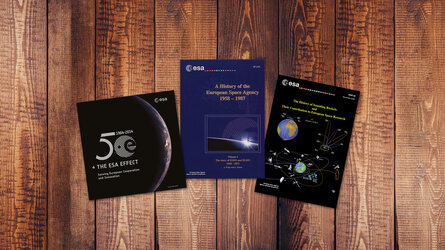A history of the European Space Agency
"Europe's history of excellence in space is one of the most visible achievements of European cooperation in science and technology that started some 35 years ago," says Prof. Reimar Lüst, in his introduction to the History of the European Space Agency, now available on CD-ROM.
These two volumes are the culmination of over a decade of work, an initiative by three professional historians of science to write an independent academic history of ESA and its predecessor organisations: ESRO and ELDO.
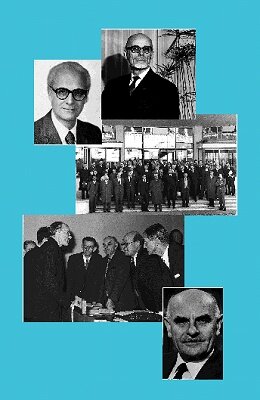
Since its feasibility study in 1990, the History project has produced more than 20 reports in a dedicated ESA History Report series, and there have been a number of presentations, seminars and publications in specialised literature.
The project has been led by Prof. John Krige and Profs. Arturuo Russo (Univ. Palermo) and Michelangelo de Maria (Univ. Rome). The latter left the project in 1993 and his tasks were continued by Dr Lorenza Sebesta (Univ. Bologna). Their work supported by an eminent advisory committee of ESA pioneers, including Reimar Lüst, Michel Bignier, Peter Creola, George van Reeth) and outstanding European historians.
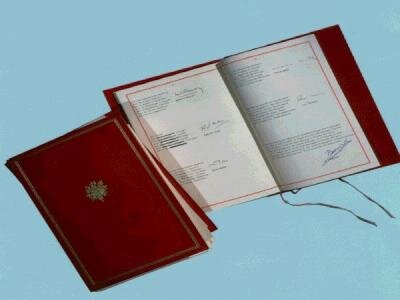
The project traces the history of the European collaborative space programme from its beginnings in the late 1950s to the creation of a single space agency in the early 1970s and up to recent developments, in the light of its main actors and policies.
"It provides valuable insights into the complex decision making processes in a unique multinational organisation which often involves a delicate balancing act between the various interests of its Member States," explained Antonio Rodota, ESA Director-General from 1997 to 2003.
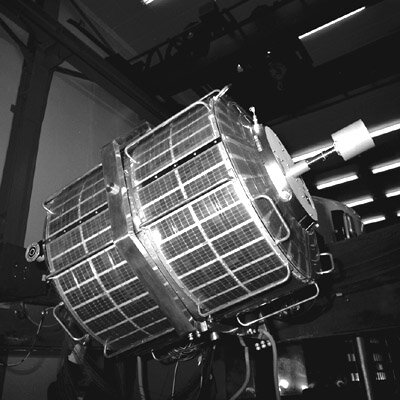
Volume 1 covers ESA’s predecessors, the European Space Research Organisation (ESRO), and the European Launcher Development Organisation (ELDO). It describes the period from the birth of ESRO and ELDO in the early 1960s, up to 1973 when the new organisation ESA was born and the programmatic basis for the new agency was laid with the adoption of the so-called Second Package Deal.
This arrangement, and the First Package Deal of 1971, allowed for a mandatory scientific programme to be supplemented by optional application programmes in various fields, as well as two major undertakings, the Ariane launcher and Spacelab, a scientific laboratory to be carried on board NASA’s Space Shuttle.
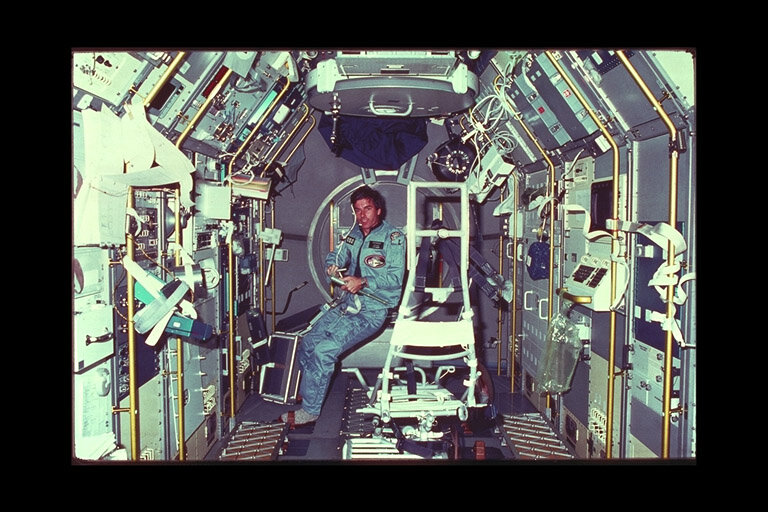
Volume 2 covers the history of ESA itself, from its birth in 1973 to 1987, when the the Ministerial Conference in the Hague approved a highly ambitious space programme to carry the European space effort into the new millenium. It thus deals with the implementation of a palette of programmes in space science and applications, as well as the Ariane and Spacelab programmes adopted by Ministers in the First and Second Package Deals in 1971 and 1973 respectively.
These works are mainly based on the ESRO, ELDO and ESA archives housed at the Historical Archives of the European Community at the European University Institute in Florence, Italy. By concentrating on this vast collection of documents, freely available for scholarly research, the authors were able to describe in detail the decision-making processes at the intergovernmental level which underpinned the formulation and evolution of the programmes in ESRO, ELDO and ESA. For more recent documents (from 1983 onwards), the authors were given unrestricted access to the archives at ESA Headquarters in Paris.
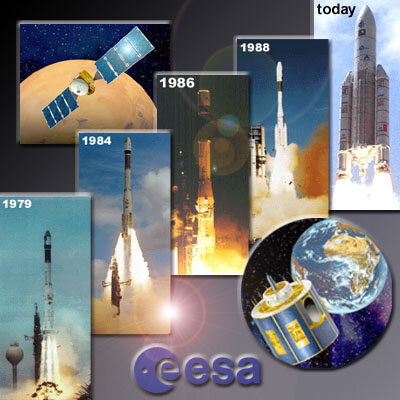
"Building on the lessons learned from ESRO and ELDO, ESA has become an outstandingly successful model of European scientific and technical collaboration. Its contribution to the development of a collective European space capability has been fundamental. The Agency has played an important role not only in space but also in uniting Europe," said Antonio Rodota.
How to order
History of the European Space Agency is available in two volumes (ESA SP-1235) or on CD-ROM and can be ordered from ESA Publications (price €75)
Advisory Committee to the ESA History Study
| Prof. Dr R. Lüst | Max-Planck Institut, Hamburg, Chairman |
| Mr M. Bignier | Paris |
| Dr P. Creola | Swiss Space Office, Bern |
| Prof. P. Galluzzi | Director, Inst. & Museum of the History of Science, Florence |
| Prof. G. Gambetta | University of Bologna |
| Prof. R. Griffiths | European University Institute, Florence |
| Prof. S. Lindqvist | Nobel Foundation, Stockholm |
| M. D. Pestre | Ecole des Hautes Etudes en Sciences Sociales, Paris |
| Dr W. Rathjen | Deutsches Museum, Munich |
| Dr G. Van Reeth | Gaiole in Chiante, Italy |
| Mr K-E Reuter | ESA, Paris, Secretary |
Further information on the ESA History project:
Nathalie Tinjod
Email: nathalie.tinjod @ esa.int















 Germany
Germany
 Austria
Austria
 Belgium
Belgium
 Denmark
Denmark
 Spain
Spain
 Estonia
Estonia
 Finland
Finland
 France
France
 Greece
Greece
 Hungary
Hungary
 Ireland
Ireland
 Italy
Italy
 Luxembourg
Luxembourg
 Norway
Norway
 The Netherlands
The Netherlands
 Poland
Poland
 Portugal
Portugal
 Czechia
Czechia
 Romania
Romania
 United Kingdom
United Kingdom
 Slovenia
Slovenia
 Sweden
Sweden
 Switzerland
Switzerland




























